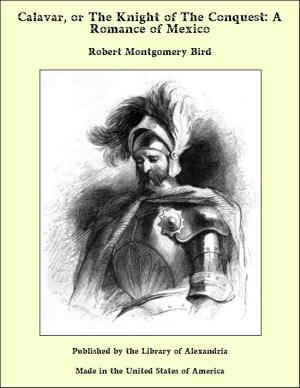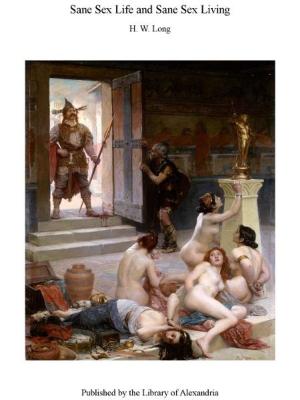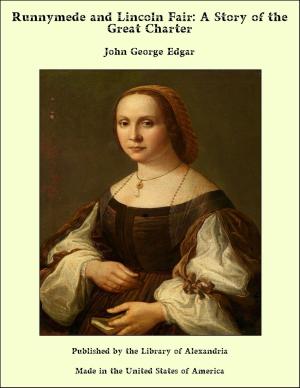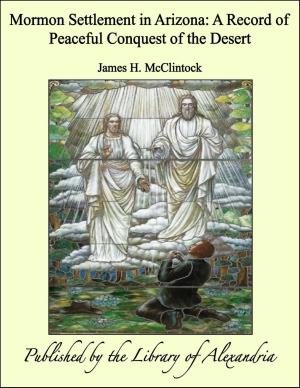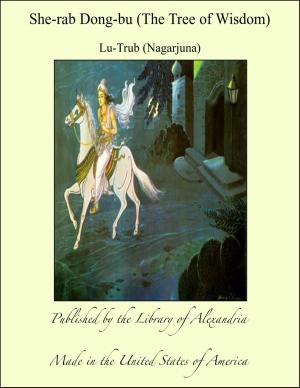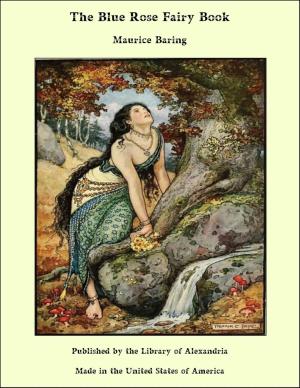| Author: | Lucy Violet Hodgkin | ISBN: | 9781465558022 |
| Publisher: | Library of Alexandria | Publication: | July 29, 2009 |
| Imprint: | Library of Alexandria | Language: | English |
| Author: | Lucy Violet Hodgkin |
| ISBN: | 9781465558022 |
| Publisher: | Library of Alexandria |
| Publication: | July 29, 2009 |
| Imprint: | Library of Alexandria |
| Language: | English |
The following stories are intended for children of various ages. The introductory chapter, 'A Talk about Saints,' and the stories marked with an asterisk in the Table of Contents, were written first for an eager listener of nine years old. But as the book has grown longer the age of its readers has grown older for two reasons: First: because it was necessary to take for granted some knowledge of the course of English History at the period of the Civil Wars. To have re-told the story of the contest between King and Parliament, leading up to the execution of Charles the First and the Protectorate of Oliver Cromwell, would have taken up much of the fresh, undivided attention that I was anxious to focus upon the lives and doings of these 'Quaker Saints.' I have therefore presupposed a certain familiarity with the chief actors and parties, and an understanding of such names as Cavalier, Roundhead, Presbyterian, Independent, etc.; but I have tried to explain any obsolete words, or those of which the meaning has altered in the two and a half centuries that have elapsed since the great struggle. Secondly: because the stories of the persecutions of the Early Friends are too harrowing for younger children. Even a very much softened and milder version was met with the repeated request: 'Do, please, skip this part and make it come happy quickly.' I have preferred, therefore, to write for older boys and girls who will wish for a true account of suffering bravely borne; though without undue insistence on the physical side. For to tell the stories of these lives without the terrible, glorious account of the cruel beatings, imprisonments, and even martyrdom in which they often ended here, is not truly to tell them at all. The tragic darkness in the picture is necessary to enhance its high lights. My youngest critic observes that 'it does not matter so much what happens to grown-up people, because I can always skip that bit; but if anything bad is going to happen to children, you had better leave it out of your book altogether.' I have therefore obediently omitted the actual sufferings of children as far as possible, except in one or two stories where they are an essential part of the narrative
The following stories are intended for children of various ages. The introductory chapter, 'A Talk about Saints,' and the stories marked with an asterisk in the Table of Contents, were written first for an eager listener of nine years old. But as the book has grown longer the age of its readers has grown older for two reasons: First: because it was necessary to take for granted some knowledge of the course of English History at the period of the Civil Wars. To have re-told the story of the contest between King and Parliament, leading up to the execution of Charles the First and the Protectorate of Oliver Cromwell, would have taken up much of the fresh, undivided attention that I was anxious to focus upon the lives and doings of these 'Quaker Saints.' I have therefore presupposed a certain familiarity with the chief actors and parties, and an understanding of such names as Cavalier, Roundhead, Presbyterian, Independent, etc.; but I have tried to explain any obsolete words, or those of which the meaning has altered in the two and a half centuries that have elapsed since the great struggle. Secondly: because the stories of the persecutions of the Early Friends are too harrowing for younger children. Even a very much softened and milder version was met with the repeated request: 'Do, please, skip this part and make it come happy quickly.' I have preferred, therefore, to write for older boys and girls who will wish for a true account of suffering bravely borne; though without undue insistence on the physical side. For to tell the stories of these lives without the terrible, glorious account of the cruel beatings, imprisonments, and even martyrdom in which they often ended here, is not truly to tell them at all. The tragic darkness in the picture is necessary to enhance its high lights. My youngest critic observes that 'it does not matter so much what happens to grown-up people, because I can always skip that bit; but if anything bad is going to happen to children, you had better leave it out of your book altogether.' I have therefore obediently omitted the actual sufferings of children as far as possible, except in one or two stories where they are an essential part of the narrative







